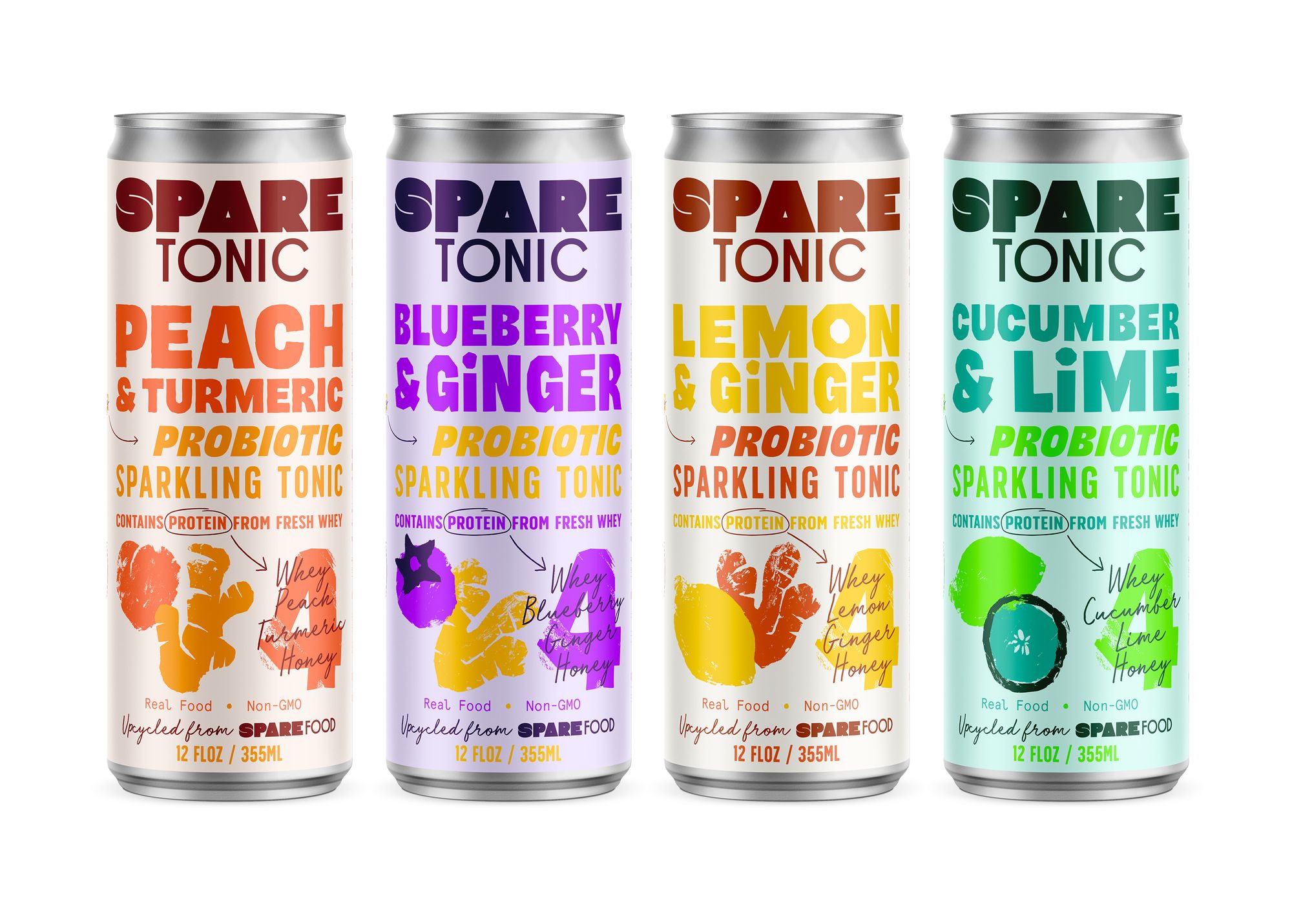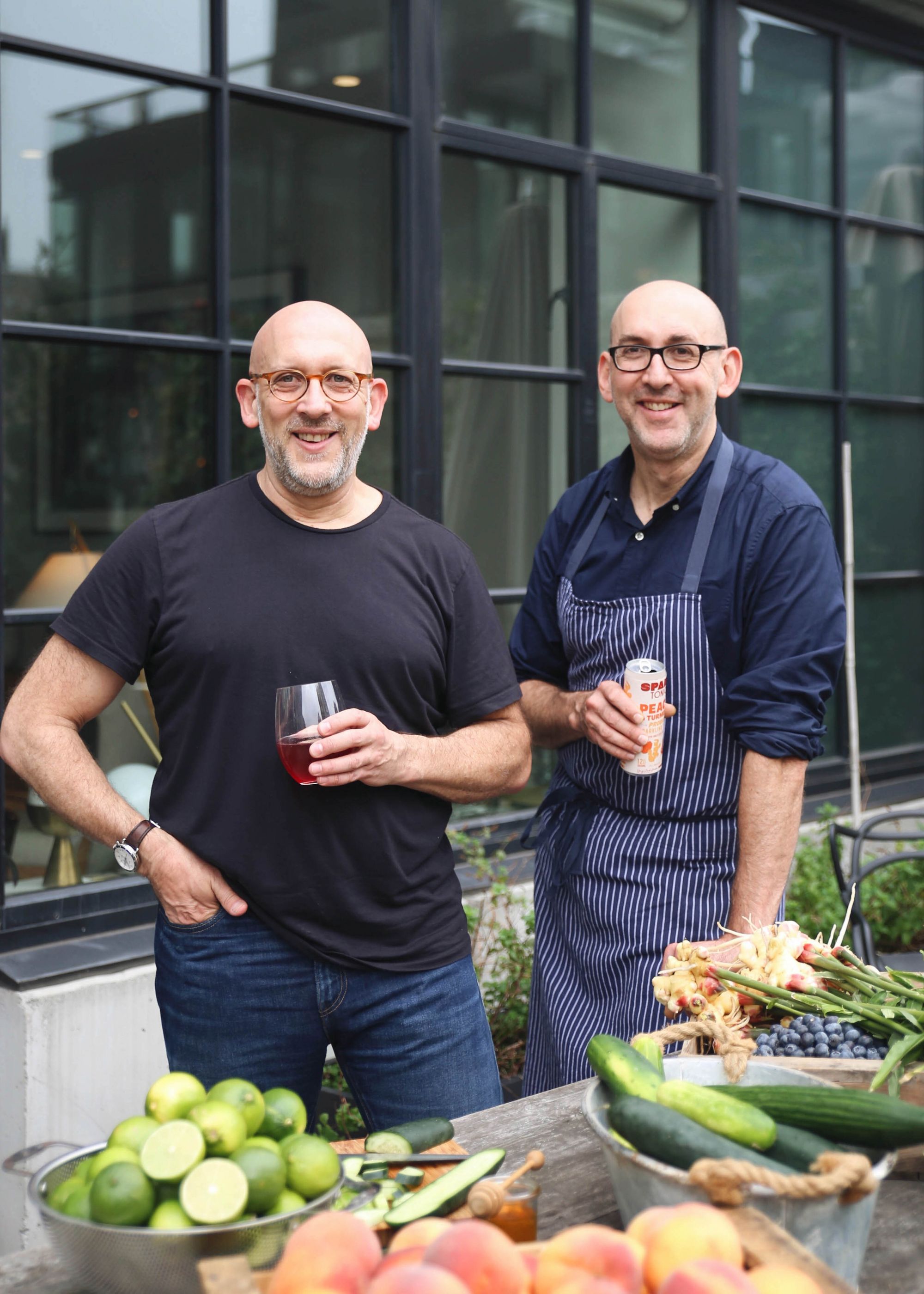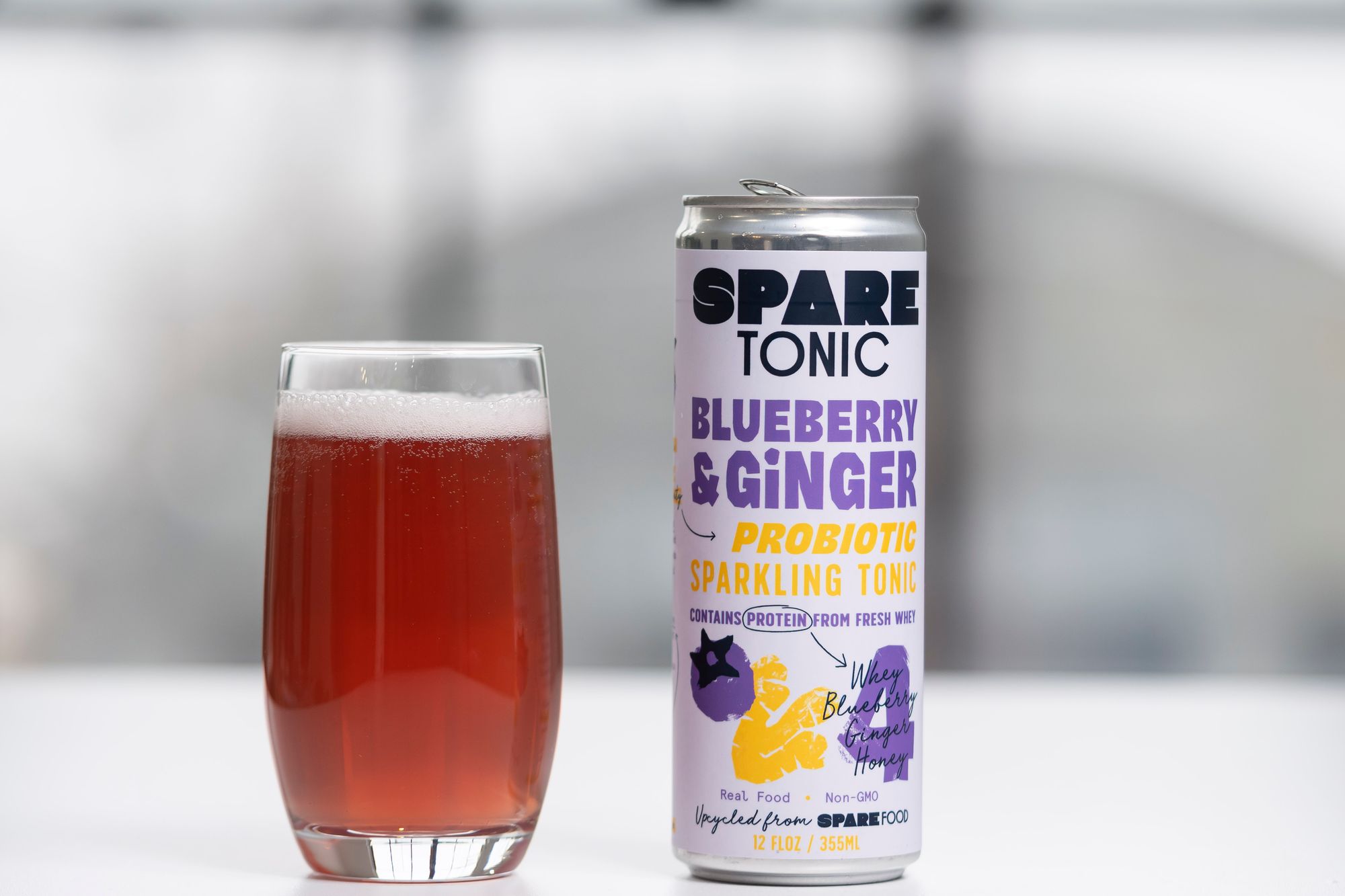Interested in starting your own entrepreneurial journey in food and beverage but unsure what to expect? Then read up on our interview with Adam and Jeremy Kaye, founders of The Spare Food Co., located in New York, USA.
What's your business, and who are your customers?
The Spare Food Co. is at the forefront of the upcycled food movement. Using the innovative culinary skills of co-founder Chef Adam Kaye (former Culinary Director at Blue Hill at Stone Barns) and the socially-conscious business experience of his brother, Jeremy (formerly Patagonia), The Spare Food Co’s mission is to fix the broken food system and find more ways to use more of what’s already grown and produced, taking overlooked and unused ingredients and crafting them into delicious, craveable foods and beverages that are better for people and the planet.
We launched our first product, Spare Tonic, last year. It is an effervescent, fermented beverage that has been upcycled with 85 - 90% whey that would have otherwise been discarded in the production of strained Greek yogurt. For every one cup of strained yogurt produced, two cups of whey are created. Spare Tonic captures what would have been the lost value of this whey (nutritionally, economically, and environmentally) and crafts it into a delicious beverage. In the process, we eliminate climate-destructive waste, support a regional food system of farmers, producers, and vendors, and bring a healthful product to market.
The beverage naturally provides a good source of protein, is rich in electrolytes including calcium, magnesium, and potassium, and is an excellent source of vitamins B-12 and B-6. It’s great on its own to hydrate as a post-workout beverage or used in cocktails or mocktails.

Tell us about yourself
The origin of The Spare Food Co. is the story of our family. We are (at least) fourth-generation food entrepreneurs. Our family is from South Africa, where our great grandfather, both grandfathers, and parents were all entrepreneurs in food-related businesses. The Spare Food Co. was born from our unique combination of life experiences, including a genetic love of good food, a deep social consciousness born of our youth in South Africa, a shared passion for travel and global culture, and a recognition that each of us has the power to make a difference in the world through the food choices we make every day. Around 30 – 40% of food produced in the United States gets wasted. Much of this wasted food ends up in landfills, where it decomposes and releases methane. Methane is a greenhouse gas that is 28-times more potent than carbon dioxide, with 80-times the warming power. Minimizing the impact food systems have on the climate crisis starts by preventing food from being wasted. We are committed to showing how a better food system and food choices can reverse the effects of climate change. It’s at the heart of everything we do, and it’s the story behind every sip of Spare Tonic.
Adam’s career did not begin in food but was rooted in environmental causes. After graduating from the University of Rochester with a degree in history and geology, he worked for a nonprofit environmental research organization in Washington, DC. After two years, he realized his true passion was in the culinary world. Adam attended the French Culinary Institute as a recipient of a James Beard Scholarship and then went on to cook in and lead some of the most influential kitchens in DC and NY. Most notably and importantly, he spent almost two decades working side-by-side with Chef Dan Barber at Blue Hill at Stone Barns as Chef, Culinary Director, and educator. The idea for The Spare Food Co. crystallized after he co-created the wastED pop-up restaurant concepts in New York and London, which garnered huge international acclaim. Adam has become a leading light at the forefront of culinary innovation in the food waste prevention movement.
Jeremy learned early in his career that business can be a powerful force for good in the world. At Patagonia, Jeremy was part of the team that created a new model for sustainable clothing and environmental stewardship. He has extensive experience leading global innovation initiatives for mission-driven organizations with startups, Foundations, and Fortune 100 companies. This immersive experience has shaped Jeremy’s conviction that transformational change happens when we connect big ideas to simple actions that shift awareness and inspire new behaviors.

What's your biggest accomplishment as a business owner?
The experience of taking an abstract concept – something that has really not been done before – and bringing it to life with integrity in the marketplace is truly remarkable. And doing so with the support, involvement, and advice of so many people who believe in us, first and foremost, is both extraordinary and humbling.
What's one of the hardest things that come with being a business owner?
It is different starting a company like Spare Food in midlife and mid-career. We’ve both seen a lot and done a lot. We’ve also made a lot of mistakes along the way and watched others do so too. We’re mindful of trying not to repeat those or those of others we’ve worked with and for, and yet sometimes… not so easy. We’re trying to do a lot at once: new product, new ingredient stream, new supply chain partners, a global pandemic, so there are fewer opportunities to share and trial our drinks. But we’re doing it. And couch-surfing while doing so was never an option!
What are the top tips you'd give to anyone looking to start, run and grow a business today?
That really depends on the type of business. We seem to have selected a particularly difficult one to break into at the best of times (CPG), and doing so with a new product that requires product and supply chain innovation along with a healthy dose of market education and inspiration makes it truly unique. All of the points below have been far more eloquently and elaborately expounded upon by others, but we’ve really worked to internalize them all.
- First is clarity and commitment, not to the what, but the WHY (yes, Simon Sinek). The world doesn’t need another [fill in the blank]. Without that clear “why,” why bother? When things are hard or challenges feel insurmountable, being able to touch on the bigger purpose is essential.
- Second, remain humble and surround yourself with people smarter than you and with experiences that are different from your own. The learning journey that you’re on is a gift and an honor.
- And third, be kind. It does not matter what you are creating; it’s the relationships and human connections that matter most. This is true for the team you’re building, the investors who support you, the suppliers and distributors and retailers you choose to work with (and who choose to work with you), and the people who support you by purchasing your product and choosing to become part of your community.
Is there anything else you'd like to share?
- You can find us online at SpareFood.com or follow us on Instagram - @sparefoodco. We regularly opine on ideas like this in our blog, Spare Food Shed. We’re just getting started, and future products are on the horizon as we look for more ways to take “overlooked” ingredients and transform them into delicious value-added products and dishes for food service, hospitality, and restaurant partners.
Where can people find you and your business?
Website: https://sparefood.com/
Instagram: https://www.instagram.com/sparefoodco/
If you like what you've read here and have your own story as a solopreneur that you'd like to share, then email community@subkit.com; we'd love to feature your journey on these pages.
Feel inspired to start, run or grow your own subscription business? Check out subkit.com and learn how you can turn "one day" into day one.
